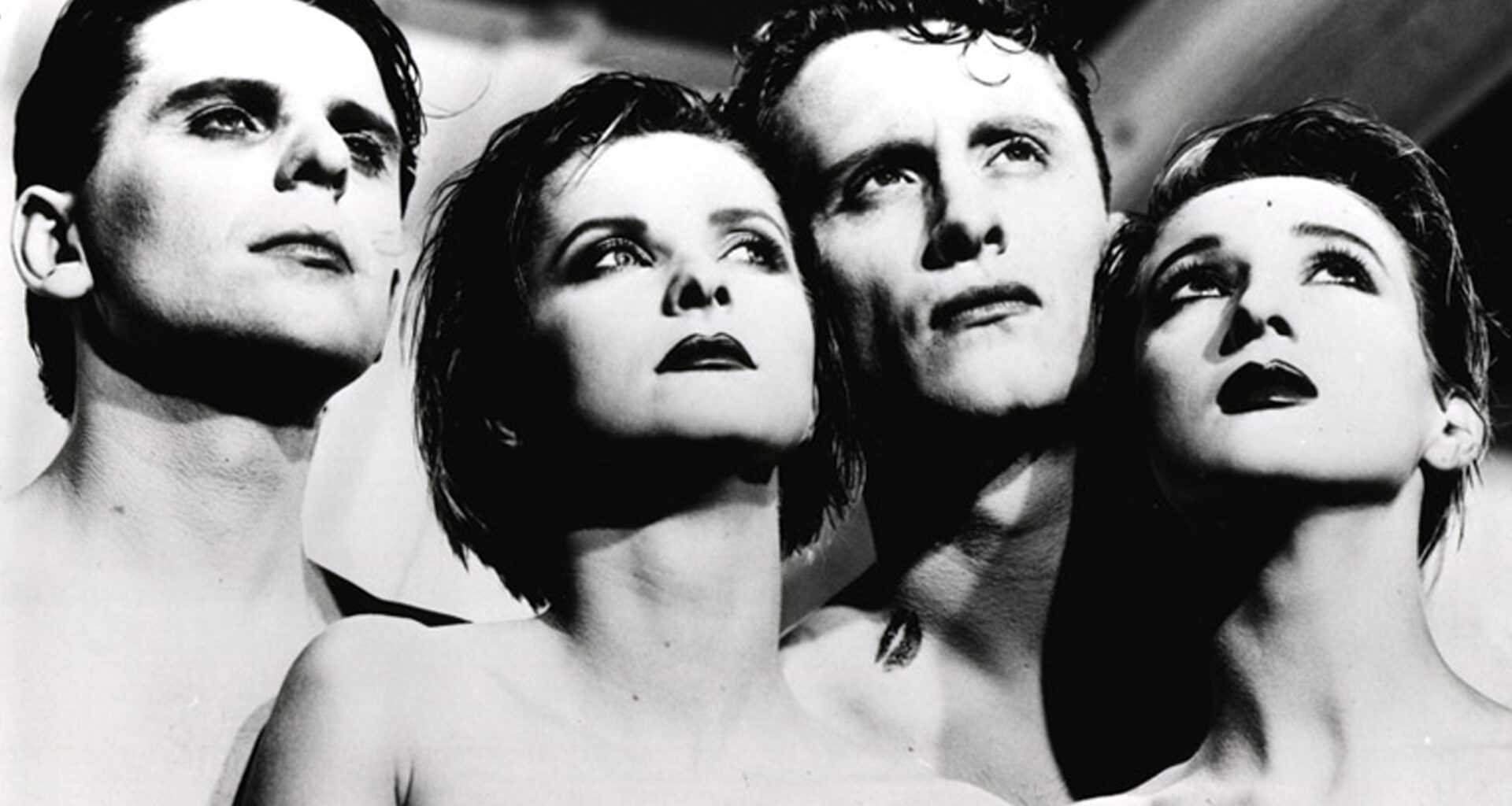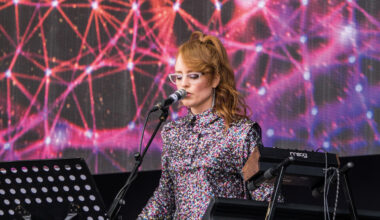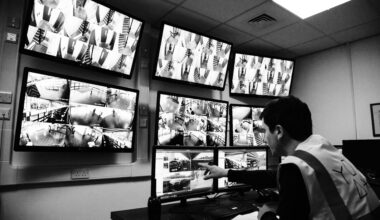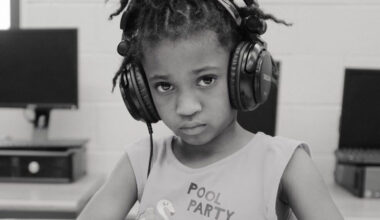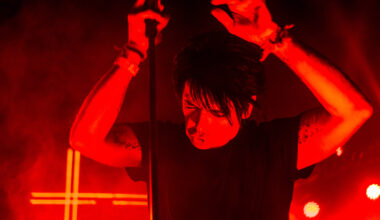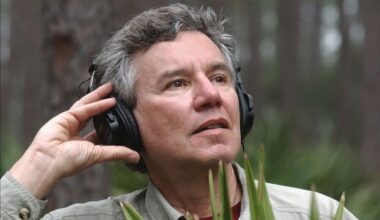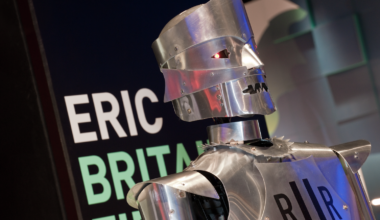Propaganda founder Ralf Dörper tells the inside story of one of the finest electropop outfits of the 1980s – from ‘Dr Mabuse’, ‘Duel’ and their almost faultless ‘A Secret Wish’ album, to the band’s lengthy legal tussle with Trevor Horn’s infamous ZTT imprint
One of the great electropop creations of the 1980s, Propaganda combined gleaming synthesisers with industrial noises, doomy Teutonic poetry with British post-punk wit, lush cinematic romance with totalitarian techno beats. Glacially sexy and glamorously arty, the Düsseldorf quartet were heavily styled and packaged like a film-noir version of ABBA. But their short-lived success ended with bitter infighting and a soul-crushing legal battle against the legendary London label that launched them.
With Propaganda’s much-loved debut album, ‘A Secret Wish’, marking its 30th anniversary this year, founder member Ralf Dörper still has mixed emotions about his brief, turbulent tenure as a Top 10 pop star.
“Nowadays we can laugh about it,” he says. “But that kind of thing can destroy people.”
Ralf Dörper’s journey to Propaganda took an unlikely route. He started making music on Düsseldorf’s proudly uncommercial underground scene at the dawn of the 1980s, briefly joining proto-punks Syph before working on his own synthesiser material. His debut solo single was a “double feature”, paying tribute to film directors John Carpenter and David Lynch.
“In a way, it explains what was going on with Propaganda later on,” Dörper says. “I sent the record to England, to the NME, because one of the guys there was writing about music from the continent – Chris Bohn, who is now editor of The Wire magazine. And he made it Single of the Week. At that time, it was absolutely amazing for something from Germany to be Single of the Week in NME.”
Dörper’s love affair with the British music press continued when he joined industrial EBM pioneers Die Krupps in 1980. Several more NME Single of the Week accolades followed. One was for the 14-minute electro-industrial piece ‘Stahlwerksinfonie’ (‘Steelworks Symphony’), which was recorded at Can’s studio in Cologne. The record also won high praise from Radio 1 legend John Peel. Dörper quit Die Krupps in 1982, but by then his connection to the UK had been established.
“I had a feeling that people in England seemed to understand what I was doing,” he says. “Not just Chris Bohn but John Peel as well.”
Looking for a new project, Dörper decided the Düsseldorf scene was “commercial and stale” and began working with Cologne DJ and programmer Andreas Thein. They set up an electronic laboratory in the open-plan Mülheimer Freiheit studio complex surrounded by visual artists, some of whom would later become superstars of the German art scene. Electronic music, cinematic soundscapes and visual art – the key elements of Propaganda were falling into place.
“In the beginning, it was supposed to be more or less a project,” Dörper recalls. “We didn’t necessarily want to start a band. We wanted to do a couple of 12-inch records maybe. We had a visual concept as well. We had ideas for songs that were sometimes just titles and ideas for record sleeves before the music existed. We were thinking of doing something with vocals and we initially wanted to mix hard sequencers with female voices.”
Like musical casting directors, Dörper and Thein began looking for a female vocalist to play the heroine in their electronic movies. Dörper approached Susanne Freytag, a jewellery designer he knew from Düsseldorf.
“I didn’t really know if she could sing,” he says. “I knew she was part of a girl band, The Topolinis, but that was more like a fun party thing. Andreas and I also had very much a filmic idea of what we wanted to do… and I thought Susanne looked Scandinavian, Nordic. That was the main thing in the beginning.”
The trio’s first recording together was a twisted semi-cover of Throbbing Gristle’s ‘Discipline’, retitled ‘Disziplin’. Electronic equipment was still scare and expensive in 1982, so the band booked a session at a studio in Essen with its own PPG Wave, one of Germany’s first analogue synthesisers.
“We started Propaganda with equipment that was actually pretty cheap,” Dörper notes. “A couple of years later, we worked with a Roland 808. The original ‘Dr Mabuse’ was programmed on this acid machine! Ha! At that time, people considered it to be cheap and shitty.”
On a short trip to London, Ralf Dörper pitched Propaganda to several British labels, including Cherry Red and the left-field outfit Operation Twilight, who had released his debut German solo single in the UK. He also had his first face-to-face meeting with his media champion Chris Bohn, who passed on the band’s demo tape to fellow NME writer Paul Morley. Soon after flying back to Düsseldorf, Dörper heard from Bohn that Morley was keen to sign Propaganda to ZTT, a new label he was about to launch with producer Trevor Horn and Horn’s wife, Jill Sinclair.
“I liked the kind of music Paul Morley discovered and how he wrote about it,” Dörper says. “And OK, I was pretty impressed by Trevor Horn, because at that time he was getting this change of image from The Buggles and Dollar. He had done Malcolm McLaren’s ‘Duck Rock’ album, which I thought was extraordinary, and also ABC.”
The promise of working with one of Britain’s more forward-thinking, electronic-friendly pop producers shifted Dörper’s musical ambitions.
“Before that, Andreas and myself were thinking about Propaganda as this alternative, underground, industrial project. We were infuenced by bands like Cabaret Voltaire, for example. But I also knew about Vice Versa and how they morphed into ABC, which I found interesting. And also with the name Propaganda, I always thought propaganda and pop as more or less the same thing. This all became clearer when the name Trevor Horn was mentioned.”
With a ZTT deal looking likely, Propaganda began to finalise their visual image as a kind of ABBA-noir quartet of two male and two female members. Generously admitting her own vocal limitations,
Susanne Freytag enlisted fellow Topolinos singer Claudia Brücken, who was then 18 and still at school.
“That was perfect for going pop because we needed somebody who could provide vocal hooks,” Dörper says. “If Trevor had heard us as a three-piece, I don’t think he would have signed us. It would have been too strange for him. It also became pretty much obvious then that we could work on this ABBA look. It was certainly more ABBA than Bucks Fizz.”
Around this time, Dörper also recruited Michael Mertens, a classically trained percussionist and electronic composer who had studied alongside Kraftwerk’s Karl Bartos in Düsseldorf. Still playing with the city’s Symphonic Orchestra, Mertens joined Propaganda as an “invisible” fifth member. In London, meanwhile, ZZT were similarly still in embryonic form. Morley was busy formulating his arty marketing strategies while Horn had yet to finish modernising his state-of-the-art Sarm West studios in Notting Hill.
“We were signed at the very beginning, before Frankie Goes To Hollywood,” Dörper says. “We could see how ZTT was starting, how they got designers in, the graphics and stuff, and we thought everything was perfect. Everybody was euphoric, especially Paul Morley, who was excited about his plans and what he wanted to do.”
But despite all the positivity, there was something bothering Dörper.
“I thought the contract we got from ZTT was a joke,” he notes. “With Die Krupps, we had a big contract with an independent label, and after that we were chased by the majors, so I certainly knew the kind of figures in the ZTT contract were jokes. The only person it wasn’t an issue for was Claudia, because she was still at school. It was the kind of money you would spend on a holiday.”
The group signed up anyway, swayed by the chance to work with Horn. Their first collaboration was ‘Dr Mabuse’, a stylish homage to Fritz Lang’s iconic trilogy of German Expressionist horror films wedded to propulsive, metal-bashing synthpop. The sessions with Horn were painstaking, especially as the high-end Fairlight, Synclavier and Oberheim machines in Sarm West were dauntingly difficult for the young Germans, often requiring trained players from outside the band. But ultimately they produced a classic debut single. Released in February 1984, ‘Dr Mabuse’ became a Top 30 hit in the UK and a Top 10 record in Germany.
“It was pretty big,” Dörper smiles. “The only problem was the media in Germany were a bit envious. They didn’t like that there was something coming from Germany that was discovered not by them, but by some guys in England. So we had a kind of image in Germany that we were something constructed by Trevor Horn.”
At this point, both band and label should have capitalised on the momentum of ‘Dr Mabuse’, but Propaganda found themselves increasingly sidelined. Claudia Brücken and Paul Morley were by now romantically involved and would later marry. She relocated to London, opening up potential divisions within the group. Their ZTT contract also gave Propaganda very limited funds to equip their Düsseldorf studio. Fortunately, Dörper was still working as an analyst at a bank and Mertens still playing with the orchestra. Signing a publishing deal with ZTT’s sister company Perfect Songs finally allowed them to buy their own PPG keyboard.
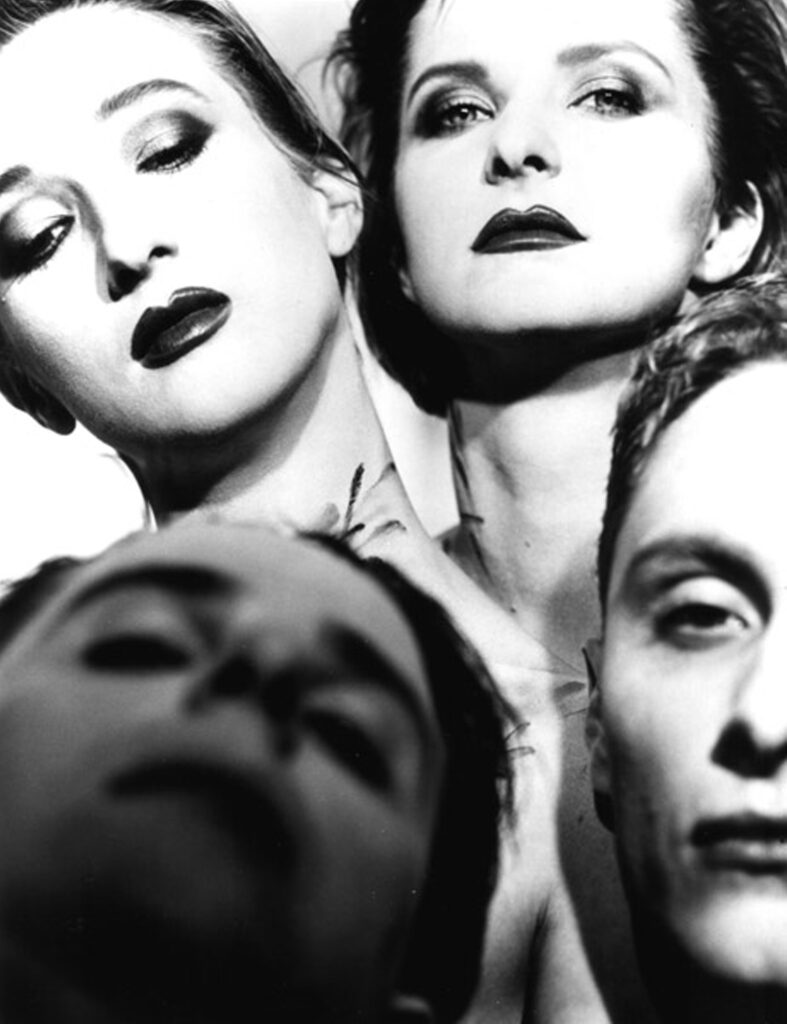
The long layover brought out other tensions within Propaganda. An increasing promotional focus on Brücken instead of the ABBA-style collective image began to rankle with Dörper. And then Andreas Thein quit the band.
“In fact, he was forced out,” admits Dörper.
Most published accounts blamed Brücken for ousting Thein, but Dörper cites other reasons too, including “gaps in the understanding between Andreas and Michael… he could be a difficult character to work with”. Dörper later worked with Thein again after Propaganda and is wary of speaking ill of him now, especially since his untimely death from cancer in 2013.
Back in the UK, meantime, Horn found himself distracted by the explosive commercial success of ZTT’s star signings Frankie Goes To Hollywood. Propaganda were put on hold.
“The gap was widening because all the time that Trevor Horn had was now spent on Frankie,” Dörper recalls. “We normally would have followed up ‘Dr Mabuse’ after a couple of months, but we got this endless delay. At first it was because we didn’t get the money for equipment. When we did get it, we made the blueprints for ‘Duel’, for ‘Dream Within A Dream’, for ‘p:Machinery’. So all that was done in Düsseldorf, in Germany, but then we had to wait and wait and wait.”
During this period, Morley flew to Düsseldorf to supervise photo sessions for singles that had not even been recorded yet. Discussions also began around the shape and sound of Propaganda’s debut album, ‘A Secret Wish’. Dörper initially favoured making the A-side an extended, symphonic version of ‘Dr Mabuse’, with five shorter tracks on the flip. But as Horn became increasingly preoccupied with Frankie and his own avant-pop collective The Art Of Noise, potential replacement producers were considered, including former Japan frontman David Sylvian and even chart-pop svengalis Stock, Aitken & Waterman. In the end, Horn’s regular studio engineer Steve Lipson took over production duties.
“At the time we said, ‘Shit, that was not the deal, who is Steve Lipson?’,” Dörper scowls. “But with hindsight, I would say we were really satisfied with what he did. I think without him, the whole project would have collapsed. He brought a certain calmness and structure back into proceedings. If you listen to our records now, you can hear that ‘Mabuse’ was definitely Trevor Horn, very much a Fairlight production, and on the following singles you can hear our sound very much going Synclavier.”
Propaganda’s second single, ‘Duel’, was finally released in April 1985, more than a year after ‘Dr Mabuse’. It was their biggest UK hit, landing at Number 21 in the charts. An instantly infectious, cheerfully upbeat Europop ditty about two lovers duelling to the death, the song contains some deceptively experimental sampled noises buried beneath its shiny surface.
“The musical concept for ‘Duel’ was to have a contrasting piece where the melodic part is more or less fighting the cacophony,” says Dörper. “That was the first thing I thought about working with Trevor Horn, to use the underground elements in a pop context.”
By now, Propaganda’s debut album was ready to go. ‘A Secret Wish’ is awash with sumptuous electro-noir numbers, from the hard-edged Eurodisco melodrama ‘The Murder Of Love’ to the rich, narcotic glide of ‘Dream Within A Dream’ and the lush cinematic instrumental ‘The Last Word’. The record features guest appearances by Glenn Gregory of Heaven 17, Steve Howe of Yes, Simple Minds bass guitarist Derek Forbes, Police drummer Stewart Copeland, and even a “small musical painting” by David Sylvian on the percussive industrial blast of ‘p:Machinery’, which would become the group’s third single.
The most incongruous track on ‘A Secret Wish’ is a synthpop version of ‘Sorry For Laughing’ by cult Scottish post-punks Josef K. ZTT had a policy of imposing covers on their acts and at one point Morley even pitched a Carpenters song. Dörper is no fan of covers on debut albums, feeling they dilute the purity of a young band’s vision. He floated The Velvet Underground’s ‘Femme Fatale’ as a compromise, arguing Nico’s glacial Teutonic torch singer vibe was a better fit for Propaganda’s Euro-noir aesthetic. But the label prevailed.
“When people say with ‘A Secret Wish’ we made a perfect album, I always say, ‘No, it’s not perfect, we have this Scottish song on it’,” Dörper notes. “At the time I said, ‘Kraftwerk would never do a cover version’.”
Released at the end of June 1985, ‘A Secret Wish’ earned critical acclaim but only made a limited commercial splash. It charted at Number 16 in the UK and enjoyed similarly modest success across Europe.
“Modest is the right word,” Dörper laughs. “ZTT were disappointed because we had quite successful singles. ‘Duel’ was popular in England and it was also big in France and southern Europe. But I think the biggest success was the next single, ‘p:Machinery’. It did nothing in Germany, nothing in England, but it was mega in France, Spain, Italy…”
Dörper was also amused to note how Paul Morley’s high-art, densely detailed packaging often proved an obstacle outside Britain. ZTT’s German affiliate label even refused to stock the 12-inch of ‘p:Machinery’ until a JG Ballard quote about the Baader-Meinhof leftist guerrilla group was removed from the sleeve.
“The further away we went from London and the Morley campaigns, the more successful it was,” Dörper chuckles. “It failed totally in the US, though. We were filming a video for ‘p:Machinery’ in New York and the record company out there couldn’t understand anything Morley wanted to explain to them about how to promote it. And in the US, ‘A Secret Wish’ got a sticker on it that said, ‘Featuring Yes guitarist Steve Howe’.”
More tensions surfaced when ZTT sent Propaganda on tour in late 1985. The line-up was augmented by Derek Forbes, fellow ex-Simple Minds member Brian McGee on drums, and session guitarist Kevin Armstrong. Technical limitations meant most of the electronic elements would be on a pre-recorded playback, so Dörper defiantly refused to join the tour.
“I was really angry with what they did, with replacing the machines with musicians,” Dörper says. “At that time, I have to say that, like The Human League, I was strongly against guitars.”
Propaganda’s relationship with ZTT hit crisis point in late 1985. Brücken was now married to Morley and her loyalties were torn. Her involvement with the remix album ‘Wishful Thinking’, made without consulting the other members and released to poor sales in November 1985, became another bone of contention. But what finally pushed the band to mutiny was meeting lawyer Brian Carr, who had represented John Lydon in his successful court case against Malcolm McLaren. Carr went through their ZTT deal and concluded it would never earn the group any money.
Propaganda initially took legal action to try and force a contract renegotiation, a fairly routine step for artists after a successful debut album. Horn and Sinclair responded in uncompromising terms, with a court injunction similar to that they would later serve on Frankie singer Holly Johnson.
Brücken quit Propaganda soon afterwards, remaining with ZTT as a solo artist. Dörper, Freytag and Mertens then faced a gruelling and costly legal battle that dragged on for 14 months. The case was eventually scheduled for the High Court in the summer of 1987. It was a high-stakes game for both Propaganda and ZTT, with the loser facing huge legal costs as well as potential damages, but Horn and Sinclair made an out-of-court offer to release the band from their contract two days before the court date.
“It was not renegotiated, unfortunately,” Dörper says. “We were released from the deal, but the recording itself continued to be under the conditions that we had signed. That meant we still needed to recoup half a million pounds or something, which we actually did in the 1990s.”
After the settlement, Propaganda signed to Virgin with an expanded line-up, including a new singer, young American Betsi Miller. They released a less successful, more conventional-sounding sequel album in 1990, ‘1234’, but by that time all the original members had left. Dörper returned to his job in banking and later rejoined Die Krupps, an association that continues to this day. In 1988, Dörper also reunited with Andreas Thein to make “Germany’s first acid house record”, Rififi’s ‘Dr Acid And Mr House’.
“That was the total opposite of ZTT – we recorded it in a day and a half,” Dörper laughs. “We had the Roland bassline sampled into the Fairlight, so it was a high-tech acid record.”
In the 30 years since ‘A Secret Wish’, Dörper has mellowed towards his former musical sparring partners. He even forgave Trevor Horn enough to rejoin his fellow Propaganda survivors to play at a gala tribute show for the ZTT founder at Wembley Arena in 2005.
“You could say I used to be impressed by Trevor… and I am not any more,” he grins. “But I am not arrogant, because I know he can do things that I can’t.”
The Wembley show led to discussions about a long-term Propaganda reunion. In the end, Ralf Dörper chose not to rejoin Freytag and Mertens when they reactivated the group, but he is back on friendly terms with his former bandmates, including Brücken, joining her onstage in London in 2013.
With a 30th anniversary version of ‘A Secret Wish’ in the pipeline, Dörper even hints teasingly that there may be some kind of Propaganda live activity on the horizon. And what about the album that still stands as their near-perfect masterpiece? Dörper pauses to consider his verdict.
“I would have liked my original plan of having the very long ‘Mabuse’ on one side, but that album does not exist,” he sighs. “But I like the instruments chosen by Steve Lipson and he managed to avoid things that sounded too 80s, because a full album with too much Fairlight is annoying to hear nowadays. And I have to say that I quite like ‘Duel’, because it reminds me of how we sampled the noisy stuff, which at that time for people at ZTT was quite new, to have this sort of industrial sound. Yes, I think it’s actually a good album. I do not do this often, but I think I could still listen to it.”
Die Krupps: Ralf Dörper – Before & After Propaganda
Industrial bands. You could name a few, right? Throbbing Gristle and Cabaret Voltaire are always the first two off the tongue. DAF are pretty close behind and maybe also Einstürzende Neubauten. And if we’re making a list of granddaddies of the genre, Die Krupps, featuring one Ralf Dörper in their original line-up, are right up there.
It was Die Krupps’ 1981 opus ‘Wahre Arbeit Wahrer Lohn’ – where minimal electronics rubbed shoulders with maximum metal bashing – that spawned a generation of industrial noiseniks such as Test Dept, Front 242 and Nitzer Ebb… who in turn influenced the likes of Frontline Assembly, Ministry and Nine Inch Nails. Which is a pretty tidy legacy.
Not content with being party to pretty much inventing EBM, Dörper actually left the band very early doors to play his part in inventing electropop disguised as Propaganda. Without him, Die Krupps continued to forge their taut racket before tempting Dörper back into the fold in 1989 to head up a remake of ‘Wahre Arbeit…’ with young pups Nitzer Ebb. Guitars seeped into their sound during the early 1990s and the whole thing got extra heavy with ‘Metal Machine Music’, their 1991 stormer of an album, while the following year’s ‘Tribute To Metallica’ EP tells you nothing you didn’t already know about this trailblazing marriage of runaway sequencers and flailing metal guitars.
A raft of musicians have passed through Die Krupps over the decades. These days, the core unit stretches right back to the original 1980 line-up and includes both Ralf Dörper and fellow founder Jürgen Engler. The band’s latest album, their 25th no less, is ‘V – Metal Machine Music’, which has just come out on Sledgehammer/Oblivion Records.
And talk about a scene that’s shot through with one city. The more astute among you will know that DAF and Die Krupps are from Düsseldorf. Oh, and the term EBM itself? “Electronic body music”, coined by Kraftwerk’s Ralf Hütter to explain the sound of their ‘Man-Machine’ album.
